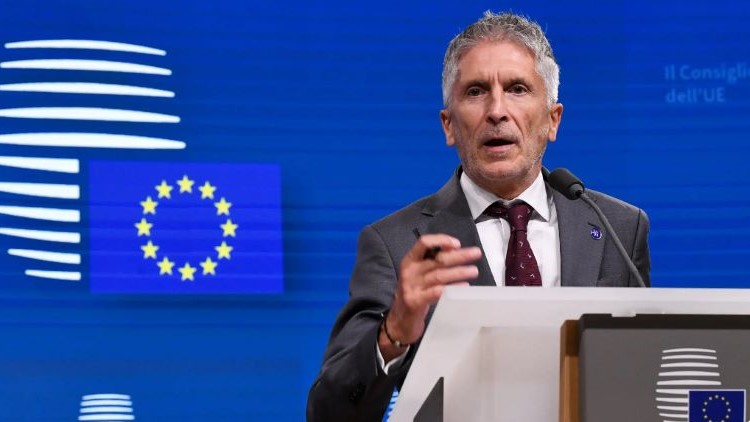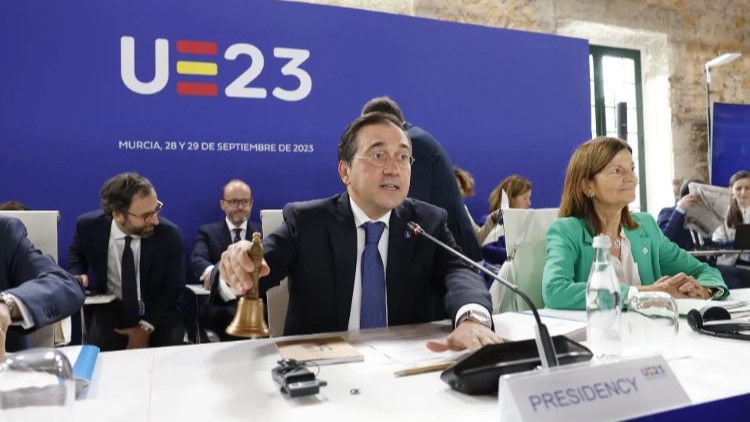The Diplomat
The EU Justice and Home Affairs (JHA) Council yesterday approved the extension by one year of the temporary protection mechanism for Ukrainian refugees residing in the European Union, a measure that will benefit the nearly 180,000 citizens of this country who have arrived in Spain since the Russian invasion. The ministers also signed a joint declaration with their counterparts from Latin America and the Caribbean to strengthen cooperation in the fight against international organized crime.
“The European Union will support the Ukrainian people for as long as necessary,” said acting Interior Minister Fernando Grande-Marlaska Gómez, who chaired the meeting in Brussels in the framework of the Spanish Presidency of the EU Council. “The extension of the protection status offers security to the more than four million refugees who have found refuge in the EU,” he added.
The temporary protection mechanism was activated on March 4, 2022, just days after the Russian armed forces launched a full-scale invasion in Ukraine, and was automatically extended for one year. With this new extension, the mechanism is extended from March 4, 2024 to March 4, 2025.
Temporary protection is an EU emergency mechanism that is activated in exceptional circumstances of mass influx of people. The EU Temporary Protection Directive was adopted in 2001, following the massive displacements that took place in Europe due to the armed conflicts in the Western Balkans, in particular from Bosnia and Herzegovina and Kosovo.
The mechanism provides immediate and collective protection (i.e. without the need to examine individual applications) to displaced persons who are not in a position to return to their country of origin. The aim is to relieve pressure on national asylum systems and enable displaced persons to enjoy harmonized rights across the EU, including residence rights, access to the labor market and housing, medical care, social assistance and access to education for minors. According to data from the Ministry of Inclusion, Social Security and Migration for the end of August, almost 180,000 Ukrainian citizens reside in Spain under the EU Temporary Protection Directive.
CLASI
On the other hand, the Justice and Home Affairs Council of the EU met yesterday with their counterparts of the Latin American Committee on Internal Security (CLASI), with whom they signed a joint declaration highlighting the need to join efforts in the fight against the challenges and threats of transnational organized crime.
The text highlights the need to build synergies in the fight against drug trafficking and human trafficking, among others, with increased cooperation between European and Latin American agencies, “Cooperation between the EU and Latin American countries in the fight against organized crime is crucial,” said Fernando Grande-Marlaska. “Today’s exchange with CLASI ministers is an important moment to boost our inter-regional partnership,” he added.
The meeting of European ministers also served to update progress on the Pact on Migration and Asylum, one of the priorities of the Spanish Presidency of the Council of the EU. In addition, EU interior ministers discussed how to build a closer and more permanent collaboration with countries of origin and transit of migrants and insisted on the development of a “preventive model” to create orderly and safe migration routes.







